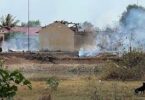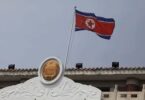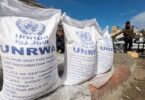DILI, East Timor (AP): Voters in East Timor cast ballots for president on Saturday in an election that will test the young nation’s stability amid a protracted political crisis and economic uncertainty.
Incumbent Francisco “Lu Olo” Guterres, 67, a former guerilla leader from the Revolutionary Front for an Independent East Timor party, known by its local acronym Fretilin, is running against 15 other candidates, including four women.
“I am confident that I will win the election again,” Guterres told reporters after casting his vote in Dili, the capital. “I call on people to accept whatever the result and I am ready to work with whoever wins this election.”
Surveys showed Guterres and former President Jose Ramos-Horta, both of whose popularity owes much to their history as fighters in East Timor’s struggle for independence from Indonesia, were among the front-runners according to a recent opinion survey, with Ramos-Horta in the lead.
Ramos-Horta, 72, a Nobel Peace Prize laureate, is backed by the National Congress of the Reconstruction of East Timor, known as CNRT, a party led by former Prime Minister Xanana Gusmao, an ex-resistance leader who remains influential.
Ramos-Horta, speaking to media while casting his vote, said the benefits of his party’s development plans would be spread more widely in society and he vowed to work closely with Gusmao to implement them.
“We have voted based on our own wish for a new president who is able to maintain stability, to develop our economy and to change the current situation,” Ramos-Horta said.
More than 835,000 of the country’s 1.3 million people were registered to vote, and the winner will take the oath of office May 20 to mark the 20th anniversary of East Timor’s independence from Indonesia, which had invaded the former Portuguese colony in 1975.
If none of the candidates secures more than 50% of the votes in the first round, a runoff between the two top vote-getters is scheduled for April 19.
Polls closed at 3 p.m. on Saturday and official results are not expected until Thursday.
East Timorese voted overwhelmingly in a U.N.-supervised referendum in 1999 to end 24 years of brutal Indonesian occupation. Indonesia’s military and pro-Indonesian militias responded to the independence referendum with scorched-earth attacks that devastated the East Timorese half of the island.
East Timor’s transition to a democracy has been rocky, with leaders battling massive poverty, unemployment and corruption as the nation continues to recover from the bloody break for independence two decades ago, with an economy reliant on dwindling offshore oil revenues and bitter factional politics that have occasionally erupted into violence.
In the last four years, continuing tensions between the two largest parties, Fretilin and CNRT, led to the resignation of Prime Minister Taur Matan Ruak in February 2020 after the government repeatedly failed to pass a budget.
Ruak agreed to stay on until a new government is formed and to oversee the battle against the coronavirus pandemic with a $250 million war chest. His government has operated without an annual budget and has relied on monthly injections from its sovereign fund savings, called the Petroleum Fund.
Guterres refused to swear in nine people nominated by CNRT as cabinet ministers in 2018, so the government is made up of ministers from two smaller parties, and several portfolios remain vacant.
CNRT has accused Guterres and Fretilin of acting unconstitutionally and illegally seizing the post of speaker of parliament.
Fretilin said that Horta is not fit to be president, accusing him of causing a crisis as prime minister in 2006 when dozens were killed as political rivalries turned into open conflict on the streets of Dili.
A clash between Fretilin and CNRT supporters also broke out in 2018, leaving more than a dozen injured and cars torched.
Campaigning, which was punctuated by parties trading political accusations, ended on Wednesday without major incident.
Joaquim Fonseca, a political analyst at RENETIL, a youth organization established during Indonesia’s occupation of East Timor, said, “It will be quite difficult for one political party to acquire a parliamentary majority and form a government on its own. Political parties will have to rely on coalitions to form a government.”
“This remains a challenge for both of the candidates,” said Fonseca, who is also East Timor’s former Ambassador for the United Kingdom. “At this point, there is no absolute certainty that either of the candidates will bring the desired changes.”
The U.N. estimates that nearly half of East Timor’s population lives below the extreme poverty line of $1.90 a day and half of children under the age of 5 suffer physical and mental stunting as a result of malnutrition.
“I do hope the winning president will look after the clean water, the roads to villages and health facilities,” said Lucio Cardozo, a Dili resident.
Oil revenues, which finance more than 90% of government spending, are rapidly dwindling and the country’s nearly $19 billion sovereign wealth fund could be empty within a decade as the government’s annual withdrawals exceed its investment returns, according to La’o Hamutuk, an East Timorese research institute.
“The finite amount in our Petroleum Fund will be quickly exhausted if we don’t use it wisely to support building strong human resources and sustainable productive sectors,” La’o Hamutuk said last November in recommendations to the government about its proposed 2022 budget.
While over 30% of the population is illiterate, the wealthiest top 10% in East Timor earn over 42% of the national income and the bottom 50% of the population take only about 16%, said Dinna Prapto Raharja, an international relations analyst and the founder of Synergy Policies, an independent consulting firm based in Jakarta.
“This is a big gap that’s not easy to bridge unless there is a fundamental governance change from whoever wins the 2022 election,” she said.
“The elite may need to discuss different models of sharing power,” Raharja said.






